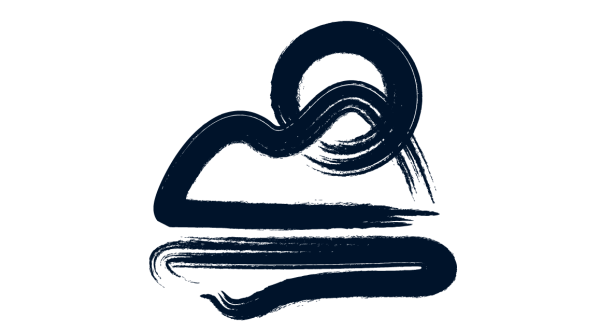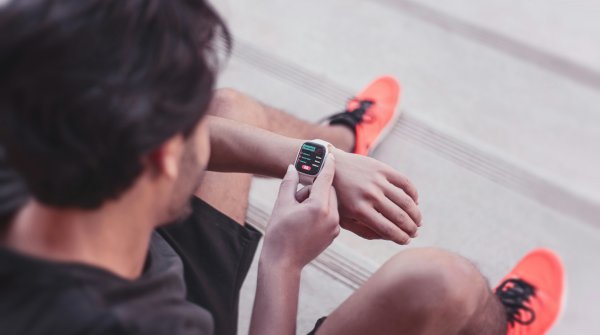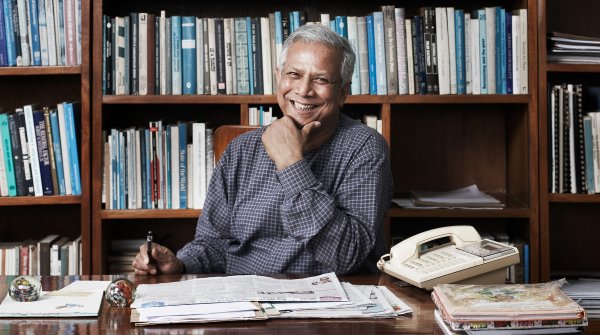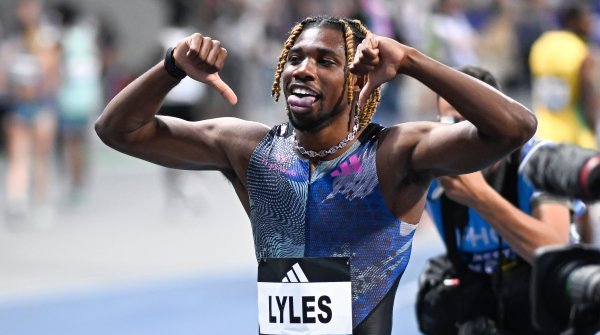- Nasim, what are you doing at the moment and what are your plans for the next few weeks?
- How does it feel to live far away from home?
- How does climbing in Europe differ from climbing in Iran?
- How much contact do you still have with the climbing community in Iran?
- What role does climbing play for you and your message?
- The topics you talk about are pretty tough and despite your success, it's certainly an uphill battle at times. How do you avoid burning out?
- You won the 21st Century Adventurer Award for your achievements in climbing, but also for your activism. What does that mean to you?
- Last question: What would be your message to the sports community?
At the moment, of course, I'm climbing a lot and building a new life on the side. For example, I have to get my driver's license again, as I can only use my Iranian license as a tourist and not as a resident in Italy. Things like that take time, of course. And then I also try to spread my message for freedom through my climbing.
Watch the interview as a video:
My home has always been the mountains, that's the most important thing for me. I have a strong connection to nature, to the mountains and to myself - that helps me a lot to stay international and global. We all have memories and nostalgia for the country we were born in. But that's not all for me. It's not the only part of my life. There are many different aspects that make up my life. I believe in communication and moving forward, not just belonging to a society or community, but being part of something unique, which is humanity. This gives me the energy to get up and not be depressed or feel down.
Italy is a country full of sunshine and that helps a lot. The people are friendly, although there are also aspects that really make my life much more difficult. But life is a challenge and without challenges it gets very boring.
The difference between countries in the West and the Middle East is that the crags there are not developed everywhere. I see it as a great privilege to open up new routes in places where it is necessary. Not just to have my name on it because I've opened a new route. Here in Europe, I don't feel it's necessary to open new routes because there are already so many. Nevertheless, I like it, it's my favorite activity because you discover a new route. I mean, we're human, we like doing it. I like to open a new route that allows others to climb in the same way. Just like the older generation gave us. And I want to pass that on to the next generation. But it has to make sense to me inside.

There are other differences too: the climbing community in Iran is very small, whereas in Europe it is much larger and better off financially. There is also less culture surrounding the sport in Iran or the Middle East.
Another interesting aspect is that in Iran I always had to go to the mountains to express my freedom and dress the way I wanted. Here I don't need to do that, I can move freely in public. Of course you are not completely free, but you have more freedom of choice. Women's clothing is still heavily scrutinized by men and society as a whole, even in Europe. But of course it's much better than in utilitarian countries where decisions are made about every single item of clothing or covering your hair.
The internet is also not very open, so it's not particularly easy to keep in touch. But I am in contact with some of my close friends in the climbing community, so I am aware of what is happening there. What I have done and am doing has an impact on the community there, so there is fear. So some people feel that it is dangerous to send messages to me.
Nevertheless, even when I was in Iran, not everyone wanted to be in contact with me because I was always very direct. I climbed in a sports bra when I was in the mountains. Many climbers, even women, didn't think that was right and reported it to the police. However, the vice squad wasn't always fit enough to come to the crag, so that was my advantage (laughs).

Not all climbers were against me, many supported me too, but all it took was one very conservative man to destroy a lot. And when they came to me and said that I had to dress differently, it was scary. Luckily I was born brave, I was born a fighter. Even though I was scared inside, I always stood my ground and reminded them that it wasn't their business and they should close their eyes. Don't look at me, climb!
It gives me a lot of connections as we are all part of a climbing and sports family. We don't have many climbers from Iran who can speak freely. I really appreciate this opportunity to speak my mind openly and directly, even if brands sometimes don't like it. It gives me strength and allows me to make my life a message for freedom. I am only a small person, but I can still have a big impact.
As an Iranian woman who knows what is happening in Iran and has the talent and knowledge to open new routes, I had the idea of dedicating the names of the routes to human rights movements. In this way, we can make human rights and freedom echo in the mountains. Hopefully I can inspire others. We don't have to be silent.

We also don't have to focus on just one topic, for example climate change. That is of course an important issue, but another group of climbers may have a different issue they are talking about.
I found it very difficult to get athletes to stand up for human rights. Of course they want to focus on their sport, but I feel the same way: I want to climb the hardest grade in the world and stand on the highest mountain, for example. But then something is missing, an empty part that needs to be filled for me to be complete. Other sports have talked about social impact and social movements in the past. They have inspired me to do the same. So far very successfully, because I have brought this topic closer to many other people.

You're right, sometimes I am very exhausted. But we humans also have this talent called resilience. And as Iranians, we have it in our genes. Even if at the moment one generation has to pay this price so that we can give freedom to the next. If we don't do that, it will never end. It can only get better because the new generation is more open. This revolution has already been won.
When the fighting gets exhausting, I escape into nature and remind myself that "this too shall pass and in the end I will have stayed true to what I believe in". I always come back to the mountains to recharge my batteries. And when I leave them again, I have this strength within me and can bring it back into society.
21st Century Adventurer Award for all women
I feel really honored, although I don't see myself as the only winner of this award. The winners of this prize are all women in Iran and other countries who have fought and are still fighting for freedom. They give me hope and I would like to use the prize money to open another route and dedicate it to a human rights movement.
If we can help women to be able to stand in public without a hijāb, and little girls too, that is freedom and a feeling that no one can take away from them. We really need to help the children. Then we can help society as a whole and put a stop to these extremist religions.
But brands can also do a lot to support activism and different causes. There are sponsors who say that there is too much activism these days and they want to focus on the performance of their athletes. But I think if I lose a sponsor, it's worth it. We have to go to the limits and push them, and that should be rewarded. I think then it's also worthwhile for brands to have such people as their athletes.
My appeal to the entire mountain and sports community would be that if you truly believe in freedom, you should live it. If you have the privilege to speak, try to include others. We should all raise our voices. Helping women in Iran or Afghanistan or other places means just that. They don't need donations. Women in Iran don't need money. They need freedom. And we achieve that when women, and men in the West, use their freedom to speak, because we are all connected.
- Awards
- Mountain sports
- Bike
- Fitness
- Health
- ISPO Munich
- Running
- Brands
- Sustainability
- Olympia
- OutDoor
- Promotion
- Sports Business
- Textrends
- Triathlon
- Water sports
- Winter sports
- eSports
- SportsTech
- OutDoor by ISPO
- Heroes
- Transformation
- Sport Fashion
- Urban Culture
- Challenges of a CEO
- Trade fairs
- Sports
- Find the Balance
- Product reviews
- Newsletter exclusive area
- Magazine







